第62章
Confirm'd] So the 4to.--The 8vo "Confirme."
by] So the 8vo.--The 4to "with."
renowmed] See note ||, p.11.(Here the old eds.agree.)
Cairo] Old eds."Cario." See note ? p.43.
stream] Old eds."streames."
at] So the 4to.--The 8vo "an."
Terrene] i.e.Mediterranean.
Where] Altered by the modern editors to "Whence,"--an alteration made by one of them also in a speech at p.48, sec.
col., which may be compared with the present one,--
"Therefore I took my course to Manico, WHERE, unresisted, I remov'd my camp;
And, by the coast," &c.
from] So the 4to.--The 8vo "to."
need] i.e.must.
let] i.e.hinder.
tainted] i.e.touched, struck lightly; see Richardson's DICT.in v.
shall] So the 8vo.--The 4to "should."
of] So the 8vo.--The 4to "to."
to] So the 8vo.--The 4to "of."
sprung] So the 8vo.--The 4to "sprong".--See note ?, d. 14.
superficies] Old eds."superfluities."--(In act iii.sc.4, we have, "the concave SUPERFICIES
Of Jove's vast palace.")
through] So the 4to.--The 8vo "thorow."
carcasses] So the 8vo.--The 4to "carkasse."
we] So the 8vo.--The 4to "yon (you)."
channel] i.e.collar, neck,--collar-bone.
Morocco] The old eds.here, and in the next speech, "Morocus"; but see note ?, p.22.
war] So the 8vo.--The 4to "warres."
if infernal] So the 8vo.--The 4to "if THE infernall."
thee] Old eds."them."
these] So the 4to.--The 8vo "this."
strong] A mistake,--occasioned by the word "strong"
in the next line.
Bootes'] So the 4to.--The 8vo "Boetes."
leaguer] i.e.camp.
Jubalter] Here the old eds.have "Gibralter"; but in the First Part of this play they have "JUBALTER": see p.25, first col.
The mighty Christian Priest, Call'd John the Great] Concerning the fabulous personage, PRESTER JOHN, see Nares's GLOSS.in v.
Where] See note ? p.45.
Byather] The editor of 1826 printed "Biafar": but it is very doubtful if Marlowe wrote the names of places correctly.
Damascus] Here the old eds."Damasco." See note *, p.31.
And made, &c.] A word dropt out from this line.
him] i.e.the king of Natolia.
orient] Old eds."orientall" and "oriental."--Both in our author's FAUSTUS and in his JEW OF MALTA we have "ORIENT pearl."
Soria] See note ?, p.44.
thereof] So the 8vo.--The 4to "heereof."
that we vow] i.e.that which we vow.So the 8vo.--The 4to "WHAT we vow." Neither of the modern editors understanding the passage, they printed "WE THAT vow."
faiths] So the 8vo.--The 4to "fame."
and religion] Old eds."and THEIR religion."
consummate] Old eds."consinuate." The modern editors print "continuate," a word which occurs in Shakespeare's TIMON OF ATHENS, act i.sc.1., but which the metre determines to be inadmissible in the present passage.--The Revd.J.Mitford proposes "continent," in the sense of--restraining from violence.
this] So the 8vo.--The 4to "the."
martial] So the 4to.--The 8vo "materiall."
our] So the 4to.--The 8vo "your."
With] So the 4to.--The 8vo "Which."
thy servant's] He means Sigismund.So a few lines after, "this traitor's perjury."
discomfit] Old eds."discomfort." (Compare the first line of the next scene.)
lords] So the 8vo.--The 4to "lord."
Christian] So the 8vo.--The 4to "Christians."
Zoacum] "Or ZAKKUM.--The description of this tree is taken from a fable in the Koran, chap.37." Ed.1826.
an] So the 8vo.--The 4to "any."
We will both watch and ward shall keep his trunk]
i.e.We will that both watch, &c.So the 4to.--The 8vo has "AND keepe."
Uribassa, give] So the 8vo.--The 4to "Vribassa, AND giue."
Soria] See note ?, p.44.
their] So the 4to.--Not in the 8vo.
brows] Old eds."bowers."
this] So the 8vo.--The 4to "the."
no] So the 4to.--The 8vo "not."
and] So the 4to.--The 8vo "a."
makes] So the 4to.--The 8vo "make."
author] So the 4to.--The 8vo "anchor."
yes] Old eds."yet."
excellence] So the 4to.--The 8vo "excellency."
cavalieros] i.e.mounds, or elevations of earth, to lodge cannon.
prevails] i.e.avails.
Mausolus'] Wrong quantity.
one] So the 8vo ("on").--The 4to "our."
stature] See note ? p.27.--So the 8vo.--The 4to "statue."
Here the metre would be assisted by reading "statua," which is frequently found in our early writers: see my REMARKS ON
MR.COLLIER'S AND MR.KNIGHT'S EDITIONS OF SHAKESPEARE, p.186.